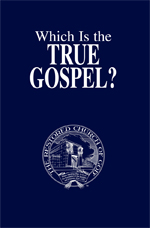Suggested Reading:
 Which Is the True Gospel?
Which Is the True Gospel?
Subscribe to the Real Truth for FREE news and analysis.
Subscribe NowAfter a sweeping re-election victory, President Hugo Chavez reaffirmed his goal of transitioning Venezuela from a capitalist democracy into a socialist state.
As Mr. Chavez was sworn in for his new six-year term before the National Assembly, he raised his right hand and boldly declared, “Fatherland, socialism or death—I swear it. I swear by Christ—the greatest socialist in history.”
Mr. Chavez also said he would ask the National Assembly, which is controlled by his political allies, for special powers allowing him to enact a series of “revolutionary laws” by decree. Seeing his victory as a referendum by the Venezuelan people, his immediate plans include sweeping changes, such as nationalizing power and telecommunications companies, and eliminating presidential term limits—in effect, paving the way to becoming a ruler for life.
Critics have accused him of doing the bidding of Cuban dictator Fidel Castro, whom Mr. Chavez admires. Rather than denying the charge, Mr. Chavez responded, “The important thing is that the people will make the decision.”
An Associated Press poll conducted in November 2006 found that 62% of Venezuelans strongly support nationalizing companies when “in the national interest,” while 84% of citizens opposed totalitarian forms of government such as Communist Cuba. The survey seems to indicate a desire to have the best of both worlds—the “free handouts” of a socialist state accompanied by the personal freedoms and human rights found in democratic nations. Yet, throughout history, have the two of these ever occurred in the same system?
Venezuela is now the fifth largest oil-producing nation in the world, accounting for more than 80% of the country’s export revenue. Mr. Chavez has cemented his grassroots popularity by using these oil windfalls to fund programs such as state-subsidized grocery stores and, with even more popular support, the Bolivarian University of Venezuela. Opened by presidential decree in 2003, the university is free and open to all.
In order to ease the fears of his country embracing socialism, Mr. Chavez has stated he is developing a new “21st century socialism.”
However—in a chilling harbinger of things to come—the Venezuelan leader closed his January 10, 2007 speech by boldly repeating the mantra made famous by Fidel Castro: “Toward victory always! Fatherland, socialism or death! We shall prevail!” Time will tell how Mr. Chavez’s vision differs from socialist experiments of the past.
Is Mr. Chavez’s statement above correct? Was Jesus Christ a socialist? Was His message one of socialism—or was it something very different?